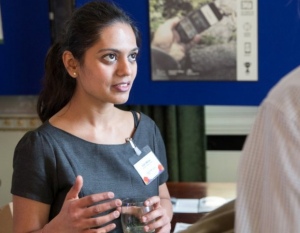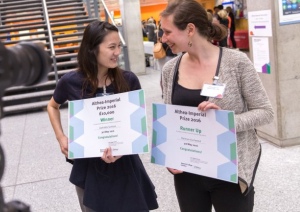Universities 'should lead the fight for gender equality in business'

Professor Maggie Dallman
Universities must do more to encourage entrepreneurial women, argues Professor Maggie Dallman, Associate Provost (Academic Partnerships).
In an article for the Times Higher Education, Professor Dallman said: “Fewer women started businesses last year than the year before.”
The business case for more women entrepreneurs is indisputable. The societal impact could be even greater.
– Professor Maggie Dallman
Associate Provost (Academic Partnerships)
“We’re missing out on tens of billions of pounds of potential economic growth. Even more importantly, countless innovations are failing to reach the marketplace.”
Professor Dallman argues that while there has been a focus on increasing gender equality on the boards of the UK’s largest firms, the UK’s start-up ecosystem lags behind.
“It’s not just the corporate giants that have a gender problem. Start-ups – the potential giants of tomorrow – do too. We need to be getting it right in all sizes and types of business.
“A recent report by Deloitte and the Women’s Business Council found that if women were setting up and running new businesses at the same rate as men, Britain could have an extra one million female entrepreneurs.”
Problem solving
Professor Dallman said: “The business case for more women entrepreneurs is indisputable. The societal impact could be even greater.”
Highlighting some of the game-changing businesses to be founded by Imperial women, she said: “Electronic engineer Esther Rodriguez-Villegas, who is based at my own institution, has developed a wearable sensor that can detect illnesses through the sounds our bodies make – offering hope to millions afflicted by heart and lung conditions.

Vidhi Mehta, founder of PostBiotics
“Vidhi Mehta is working to tackle the threat of antimicrobial resistance through a citizen science platform, PostBiotics, which helps anyone join in the search for new antibiotics.
“The world is changing. We’re facing unprecedented challenges in public health, transport, the environment, and housing. We need bright, creative innovators to help us find solutions to these problems. We cannot afford to leave half our talent pool untapped.
“Universities, as much as businesses, can lead the fight in righting these wrongs.”
Althea-Imperial
Professor Dallman highlighted the Althea-Imperial Programme as a “compelling answer” to the limited access to start-up networks and lack of role-models that create obstacles for women wishing to start their own businesses.

Gabriella Santosa and Florence Gschwend, winner and runner up of the 2016 Althea-Imperial Prize.
“The scheme takes some of the best students of science, technology, medicine and business from Imperial College London, and catalyses their entrepreneurial instincts.
“These bright young women are precisely the people we need to create the next generation of UK start-ups.”
Concluding, Professor Dallman said: “The need to remove barriers for women in the start-up world feels more urgent than ever. Britain’s business and political leaders should put female entrepreneurs at the top of their agenda, and universities can help make that happen.”
Article text (excluding photos or graphics) © Imperial College London.
Photos and graphics subject to third party copyright used with permission or © Imperial College London.
Reporter
Deborah Evanson
Communications Division